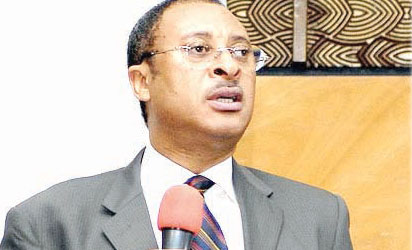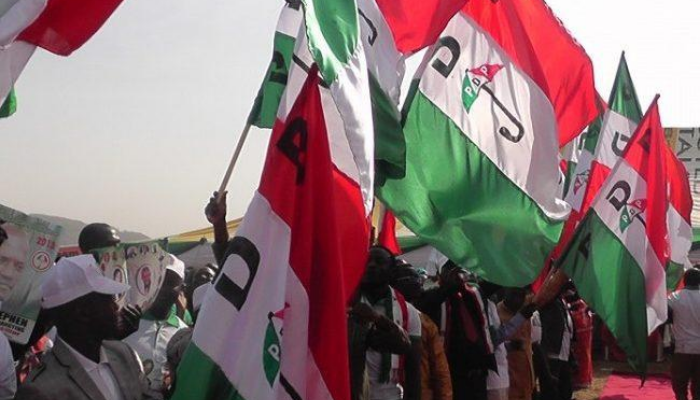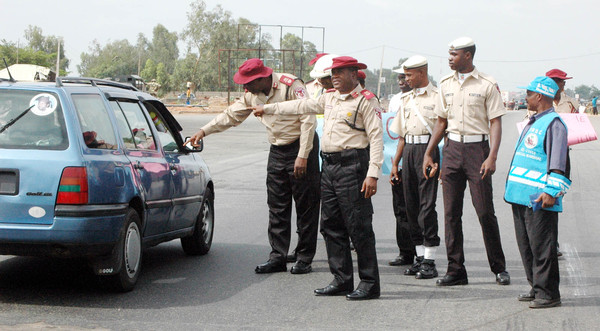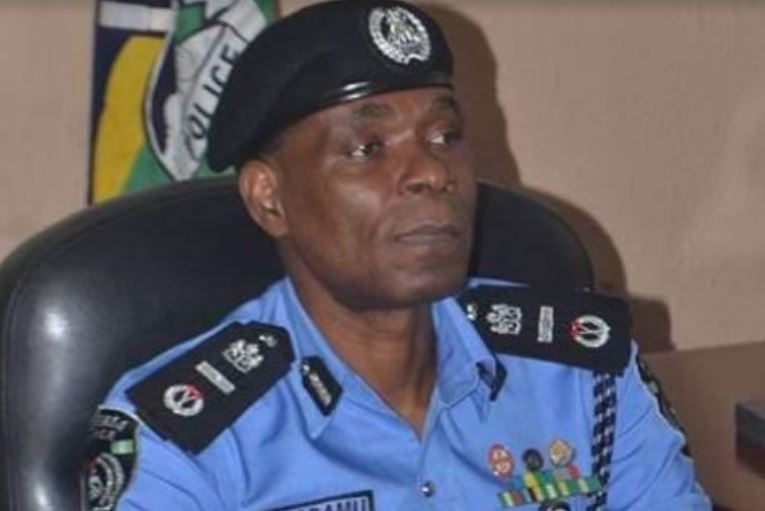Barely 24 hours after defecting to the ruling All Progressives Congress, the opposition Peoples Democratic Party came out swinging at former Aviation Minister, Chief Femi Fani-Kayode.
Senate Minority Leader and PDP’s staunch member, Enyinnaya Abaribe (Abia South), appearing on Arise TV on September 17, 2021, referenced former President Olusegun Obasanjo as saying that, “Fani-Kayode will always go to where there is ‘food’.”
On the decamping of Fani-Kayode, Abaribe said: “I do not want to dwell on his issue. Former President Olusegun Obasanjo had said it all before, (that) ‘Femi Fani-Kayode is my boy. Provide him food, he will eat and then sing for you. He’s a smart boy’.”
While the PDP is swift in attacking Fani-Kayode, watchers of the polity have waited, for months, for it to go after businessman-turned politician, Gbenga Olawepo-Hashim, for joining the APC.
As its pastime, the PDP would assail any politician, and particularly members of the PDP, for daring to switch camps to the APC, which the PDP monikers as a cesspool of corruption.
Chief Olawepo-Hashim, a human rights activist, and founding member of the PDP, decamped from the party prior to the 2019 elections, and ran for president under the Peoples Trust.
Rather than return to the PDP, Olewapo-Hashim has joined the APC, and surprisingly, the PDP has looked the other way. Why? Is it because the party is “carrying an elephant of a crisis,” and can’t afford to dig for crickets with its toes? Not likely!
An Esan adage says: “A dog that encounters ‘terrible’ feces can’t bark.” The PDP has faced a dreadful ‘dung’ in Olawepo-Hashim that it’s gone AWOL or to Afghanistan, as the self-made politician, in a reversal of roles, turned the corruption tables on the PDP.
In his decamping speech, he said he’s drawn to the APC because of President Muhammadu Buhari’s “passion and determination to tackle corruption in Nigeria despite dubious attempts by his critics to belittle the effectiveness of his anti-corruption crusade.”
Without mentioning its name, Olawepo-Hashim, a former student activist, detained by the Police in April 1989 after an anti-apartheid protest, went for the PDP jugular, noting that, “ironically, the other party does not even care a whim about curbing corruption.”
“Regrettably, its (PDP) members celebrate their newly-adopted legacy of graft and display of criminal opulence,” he said, adding, “the other party is a far cry from the community of honourable men and women that it was in 1998 when we launched it.”
If any other decamping politician had praised Buhari’s fiercely “vilified” anti-corruption crusade, the PDP, through its megaphone, Kola Ologbondiyan, would’ve hit the roof nailing the “affront.”
But not so when it comes to Olawepo-Hashim, who, as a former stalwart and financier of the PDP, knows about the corruption perception that attended the 16-year rule of the party.
The PDP warped logic, as the APC numbers swell, is its tendency to want to have it both ways by labelling defectors to the APC as “corrupt politicians” fleeing to avoid the anti-graft searchlight.
Why is it that when in the PDP, you’re “squeaky clean,” but immediately you cross over to the APC, you become “a crook and looter” to be loathed and hounded by the opposition?
Amusingly, before quitting, the PDP bigwigs would be on their knees, pleading with the “defectors” not to flee the “sinking ship” or the “tattered umbrella,” as the APC is wont to describe its rival!
Other recent defectors are: Governors Dave Umahi (Ebonyi), Ben Ayade (Cross River) and Bello Matawalle (Zamfara); former Governor Gbenga Daniel (Ogun); former Speakers, House of Representatives, Yakubu Dogara (Bauchi) and Dimeji Bankole (Ogun); PDP’s BoT member and former Senator, Joy Emordi (Anambra); former Aviation Minister and Senator, Stella Oduah (Anambra North); and many members of the National and State Houses of Assembly.
Away back, the PDP bragged about these personalities, describing them as leading lights, performers and deliverers of “democratic dividend” that their APC counterparts couldn’t deliver.
What happens when they exit the PDP? The “praise singers” would become the defectors’ tormentors-in-chief, tarring them black with corruption, as they’ve done to members of the APC.
But when political chieftains defect from the APC to the PDP, the PDP hegemons would embrace and hail them as “saints” doing a “Ben Johnson” from the alleged coven of sleaze.
Recall the 2020 poll in Edo State in which Governor Godwin Obaseki, prior to defecting from the APC, was pilloried by the PDP as corrupt, but praised as scrupulous after he joined the PDP!
This is despite Rivers State Governor Nyesom Wike’s description of the stakeholders shepherding Obaseki into the PDP as “tax collectors” (bribe-takers) wanting to “shave Obaseki’s hair” before giving him the ticket to run at the poll.
Imagine Obaseki going back to the APC, and PDP leaders would rush to knock him as corrupt! It appears the PDP relishes bandying the toxic word to tarnish friends-today-enemies-tomorrow for their “brashness” in decamping to the APC, its current nightmare.
Could any of the PDP “purists” thump their chests and proclaim themselves free from looting the public purse that has left Nigeria prostrate, and behind in most indices of development?
The PDP chieftains’ nick-naming of former “colleagues” as corrupt will not do the magic of stopping the inevitable exodus from its platform, but will encourage more to seek refuge in the APC.
The PDP needs an unbiased introspection on why its leaders and members leave in droves, and not recourse to the arcane charge of defectors joining the APC to avoid the anti-graft dragnet.
It’s not enough for the PDP to identify and blame those wanting a change of its leadership as striving to destabilise the party; there must be genuine conversation on the underlying grievances, for the attainment of true reconciliation.
The PDP should use the opportunity of its current crisis to do the soul-searching, and arrive at implementable recommendations that would produce an acceptable leadership at the party convention in October 2021, to enhance its chances in the 2023 polls.
Obviously, the crisis in the PDP (with a similar manifestation in the APC) is grounded in ambition for the high office of President of Nigeria, with tens of powerful members angling for the single slot.
Look at the speculated list of aspirants – and still counting – for the presidency in 2023, and one would realize why there’re differing tendencies tugging at the soul of the PDP. The aspirants include:
Former Vice President/Presidential candidate, Atiku Abubakar (Adamawa); former Vice President, Namadi Sambo (Kaduna); former Governor/Vice Presidential candidate, Peter Obi (Anambra); former Governor/Senate President, Bukola Saraki (Kwara); and former Reps Speaker/Governor, Aminu Tambuwal (Sokoto).
Others are: former Governor/Senator, Musa Kwankwaso (Kano); former Governor/Senator, Ahmed Makarfi (Kaduna); Governor Wike (Rivers); Governor Bala Mohammed (Bauchi); Governor Seyi Makinde (Oyo); and former Governor Sule Lamido (Jigawa).
By mimicking APC’s reported consensus presidential pick, can the PDP manage its titans’ ambitions or flunk the process and turn around to blame the APC for “rigging” its (PDP) primary?
Getting it right isn’t about PDP’s wish for APC’s demise, sack of its Caretaker Committee chairman, Governor Mai Mala Buni (Yobe), or naming APC as a den of the corrupt and poll riggers, but ensuring a transparent choice of its presidential candidate, to avoid endless gnashing of teeth beyond 2023. The PDP better be wise!
Mr. Ezomon, Journalist and Media Consultant, writes from Lagos, Nigeria.





